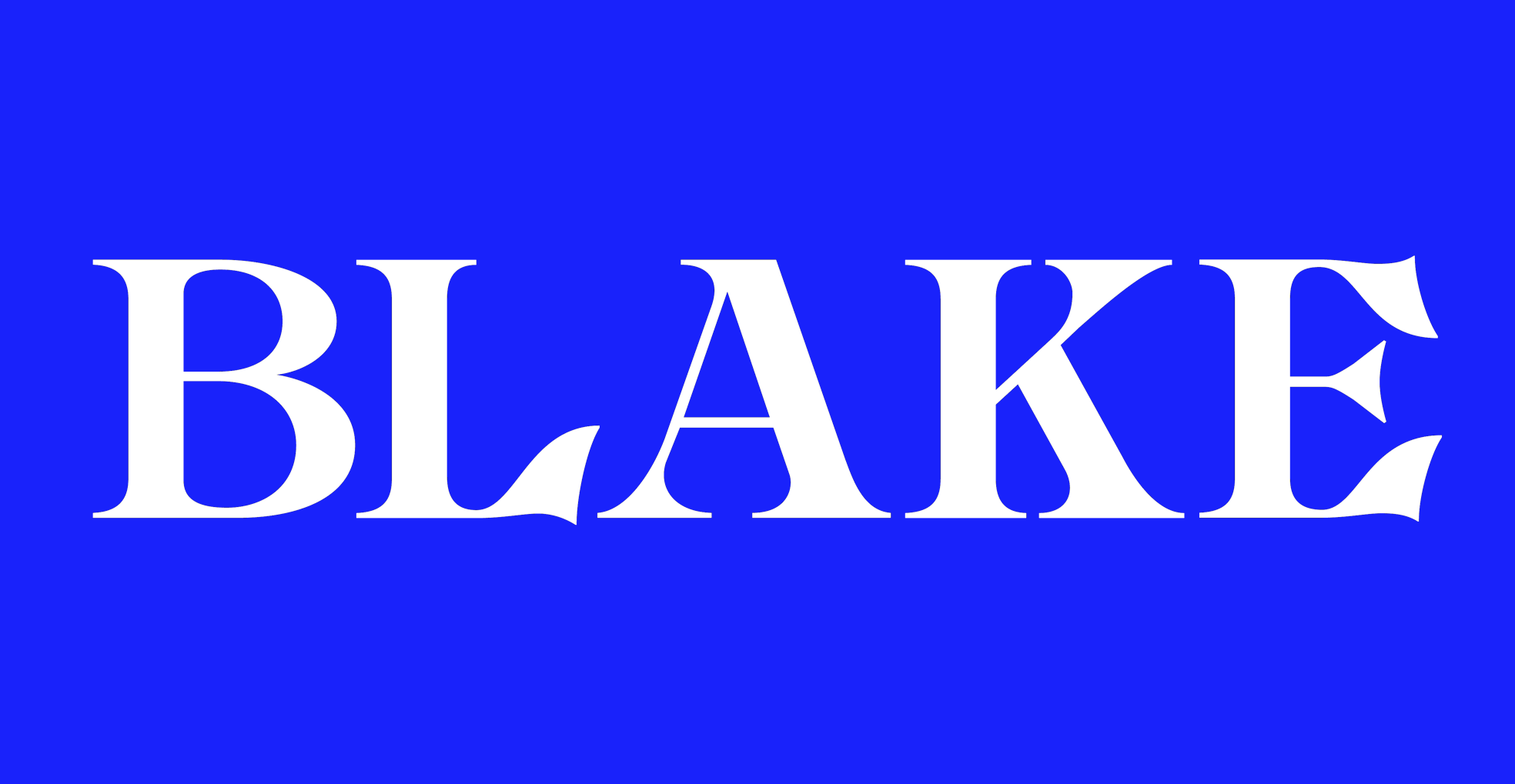The year was 1928 and Prohibition was at the height of its reign in the United States. In a feeble attempt to sober the entire country, the government banned all sale, consumption, and production of alcoholic beverages. That did not sit well with a group of brewers in small town, Bluffton, South Carolina. They quickly went to work, beginning an underground system of alcohol production, under the guise of a southern sweet tea company.
Delivering thousands of glass mason jars of hard sweet tea every month, the band of rebels were admired by the many as “scofflaws” who paid no mind to the rules they were faced with. Today, Scofflaw Spiked Tea upholds the same against-the-grain, counterculture values of the original scofflaw brewers. Delivering you a spiked tea so good, you will have a hard time keeping it a secret.
Delivering thousands of glass mason jars of hard sweet tea every month, the band of rebels were admired by the many as “scofflaws” who paid no mind to the rules they were faced with. Today, Scofflaw Spiked Tea upholds the same against-the-grain, counterculture values of the original scofflaw brewers. Delivering you a spiked tea so good, you will have a hard time keeping it a secret.
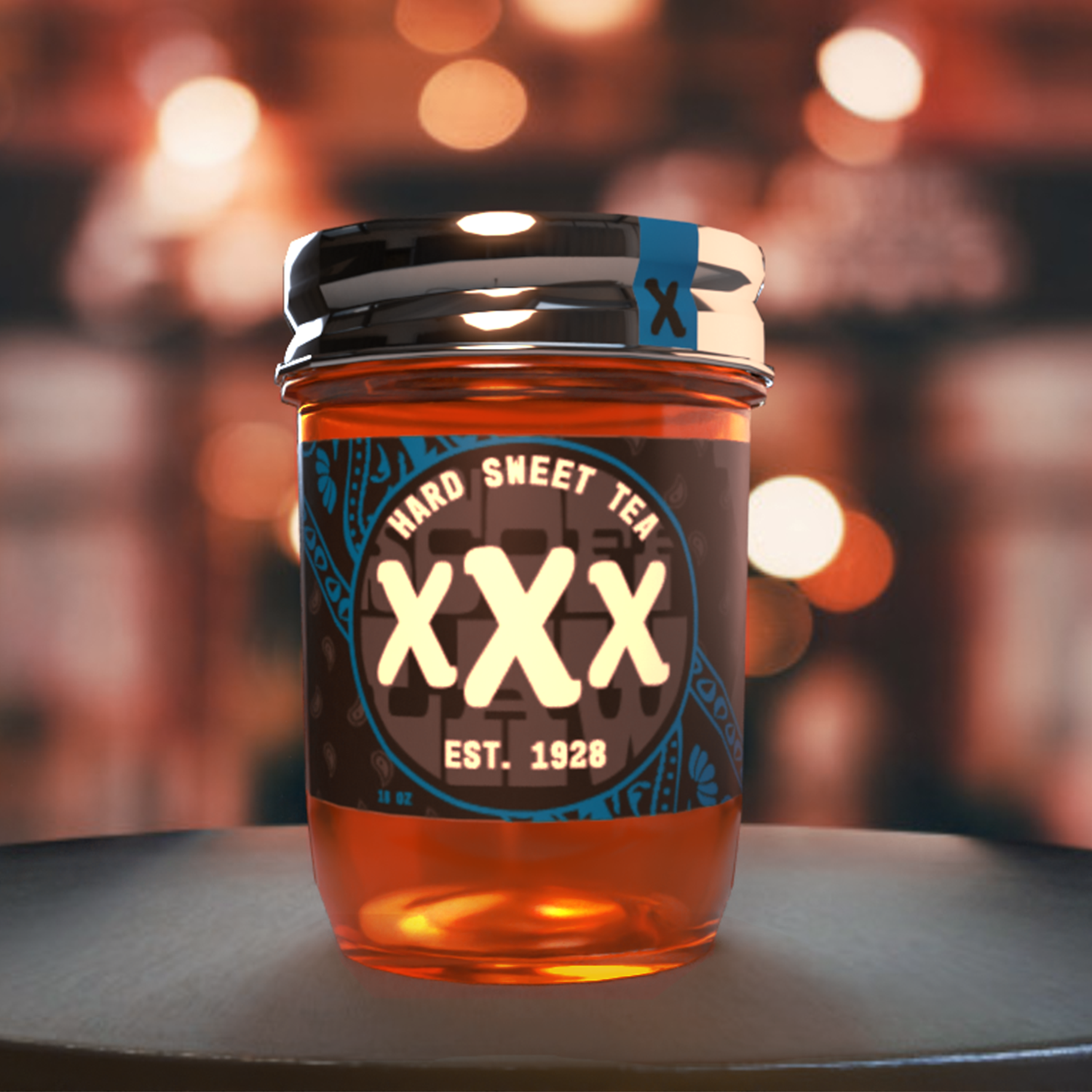
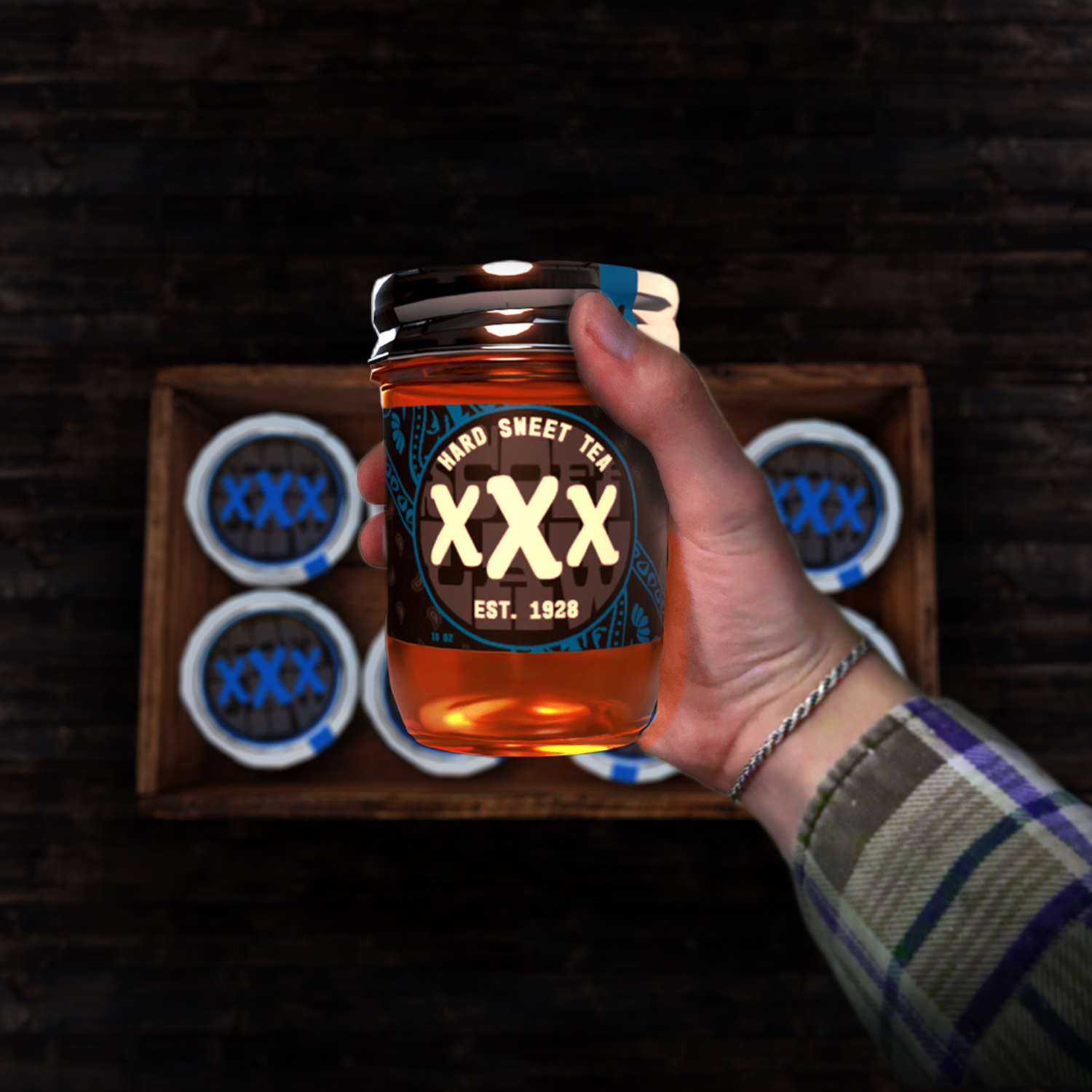
Process: In my initial sketches, I wanted to capture the visual language of protest signage during the prohibition era, as well as the classic outlaw-associations we have today.
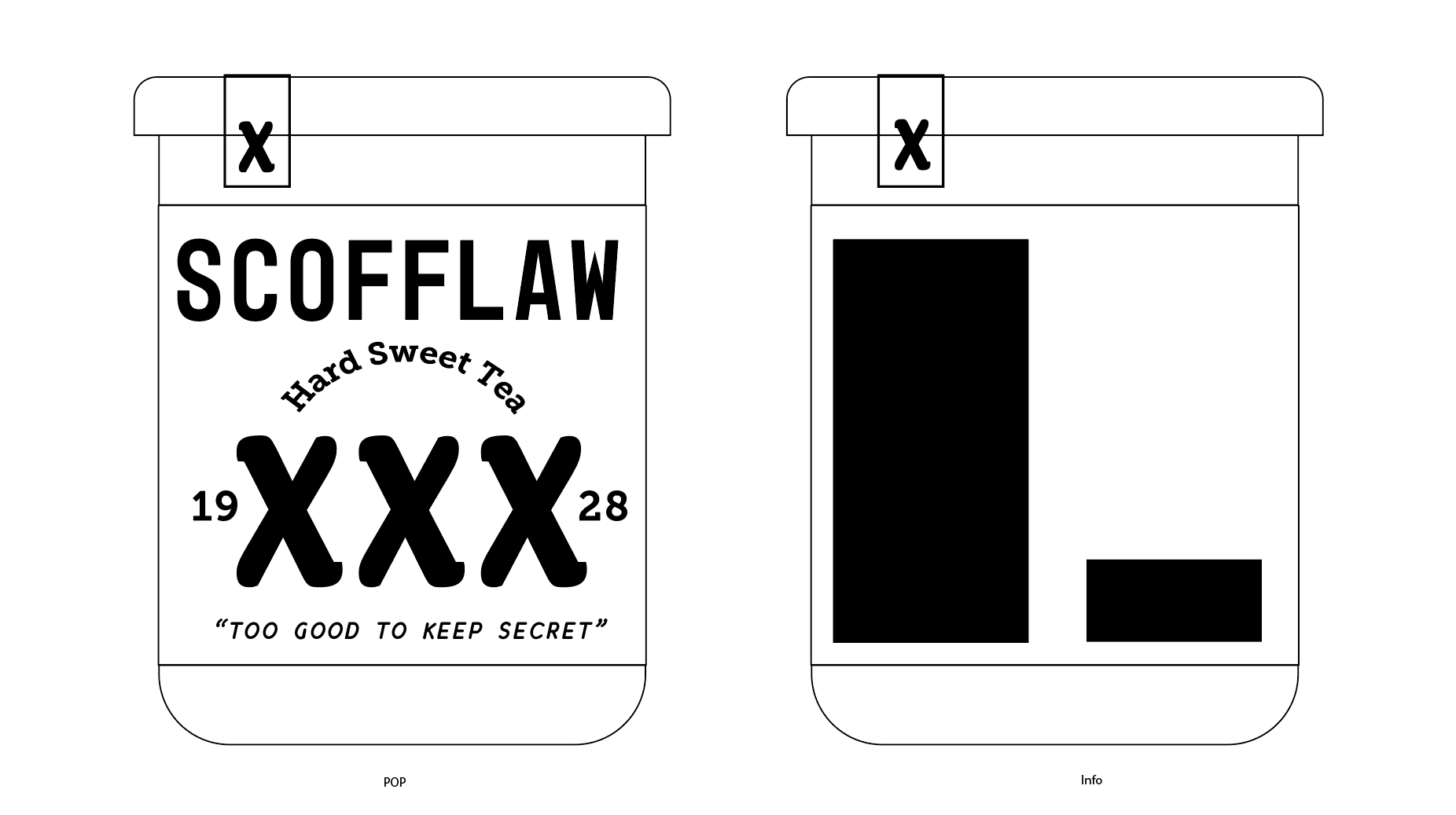
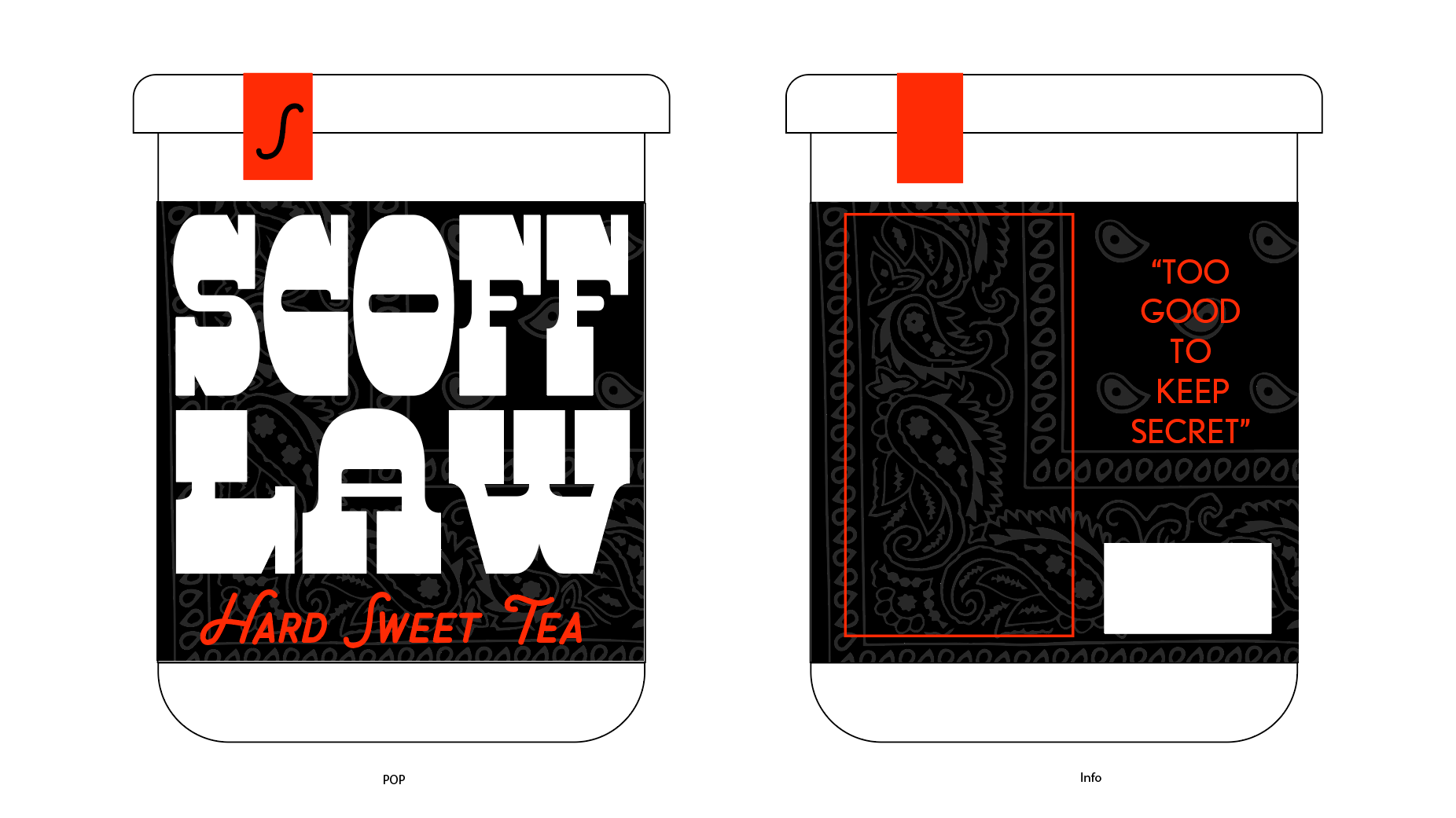
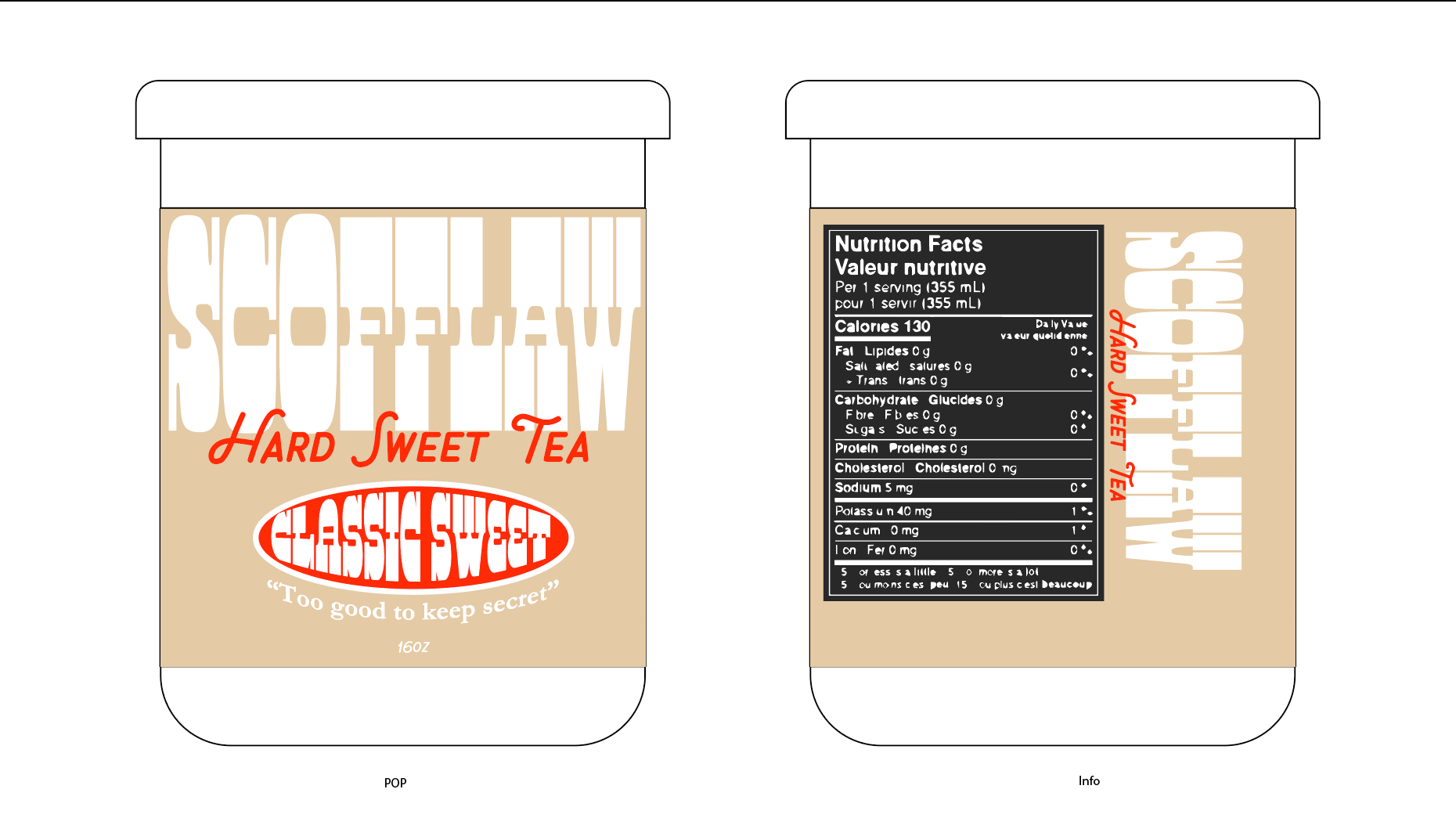
Scofflaw aims to break social stereotypes that ciders or hard teas are less "masculine" and therefore are left to be drank by the more "dainty" consumer. No matter how obviously outdated social norms appear to be, they can still be difficult to avoid. Scofflaw enjoyers can adorn a wild west persona, and feel empowered in their decision to drink hard tea in any social situation.
After several iterations of revision, I created a bold, masculine, and balanced product label that compliments the authenticity and charm of a southern-branded "outlawed" hard tea.
